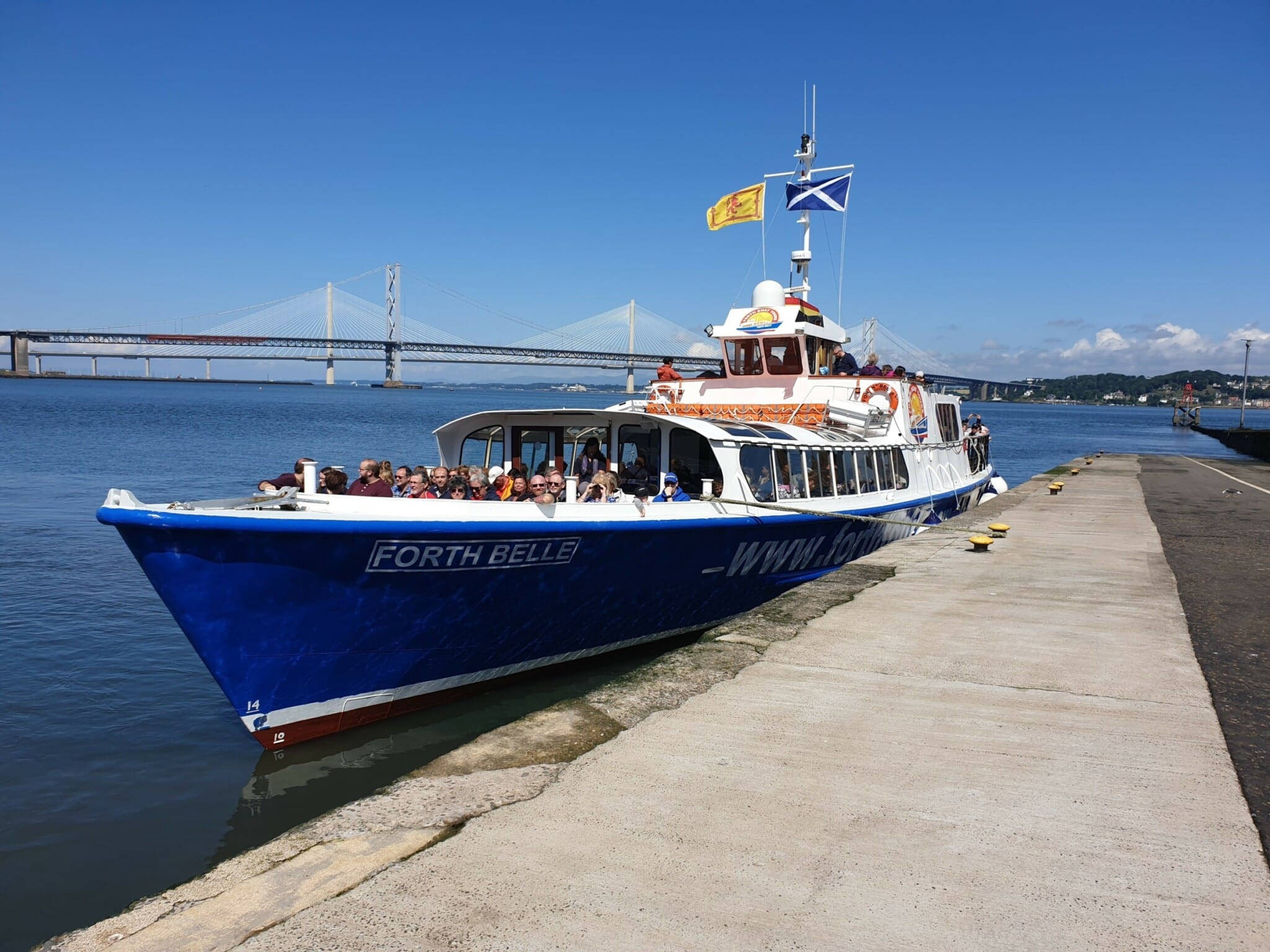The Forth Belle
The Forth Belle
‘The Belle’ is 29 metres (83 feet) in length and is licensed to carry up to 215 passengers. For onboard events we suggest a maximum of 150 for comfort. There is a heated indoor saloon, which also has seating on the lower deck, a covered area on the aft deck.
This provides an excellent space for entertainment and dancing, and open decks fore and aft which provide seating for up to 80 people. ‘The Belle’ has a café/bar and is equipped with its own sound system for live music events. The rear deck can also be converted to a dance floor.
Queensferry Belle
Queensferry Belle
Our vessel is licensed to carry up to 215 passengers. For comfort we limit passenger numbers on our evening cruises and special functions to 120 people.
The glass-roofed heated indoor saloon provides seating for up to 100 passengers. Both forward and aft decks provide additional seating.
Weather-proof seating is provided on the outside decks.
Forth Princess, Scotland’s Dunkirk Veteran
Forth Princess, Scotland’s Dunkirk Veteran
The latest addition to our fleet, the Forth Princess is licensed to carry up to 103 passengers. The indoor saloon provides seating for up to 60 passengers. Weather-proof seating is provided on the outside decks.
On board the Forth Princess there is a café-bar where we have a selection of spirits, bottled and draught beers, teas, coffees and light snacks.



